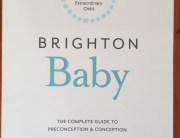 Some of Britain’s best-known foods contain the controversial chemical bisphenol A. Tins of Heinz baked beans, soup and beans, John West and Princes fish, and Napolina tomatoes are lined with a membrane containing bisphenol A, or BPA. Other companies using it in their tins include the biggest retailers in the UK, Tesco, Sainsbury’s and Asda, who use it for tins of tuna and sardines.
Some of Britain’s best-known foods contain the controversial chemical bisphenol A. Tins of Heinz baked beans, soup and beans, John West and Princes fish, and Napolina tomatoes are lined with a membrane containing bisphenol A, or BPA. Other companies using it in their tins include the biggest retailers in the UK, Tesco, Sainsbury’s and Asda, who use it for tins of tuna and sardines.
Britain’s Food Standards Agency (FSA) has given the chemical the all-clear, in contrast to the US Food and Drug Administration, which in January expressed concern over its impact on the brains and development of young children and said it was “taking reasonable steps to reduce human exposure” to it in the food supply. After the American U-turn, the EU-funded European Food Safety Authority (EFSA) launched and is still carrying out a review of BPA.
BPA is an endocrine disruptor that interrupts hormones and, in laboratory experiments on animals, has been linked with breast cancer, prostate cancer, hyperactivity and other metabolic and behavioural problems, diseases which are all on the rise in the West. But the plastics and chemicals industries insist its use is safe and accuse campaigners of misleading the public, pointing to industry-funded studies involving large numbers of rodents that have shown no harm.
At stake is the future of one of the highest production volume chemicals in the world. BPA is widely used to harden the plastic casings of mobile phones and computers and makes baby bottles shatterproof. In food products, it commonly lines the inside of cans and tins to protect their contents from being contaminated by the metal.
To establish its prevalence in food, The Independent surveyed manufacturers of the UK’s 20 best-selling tinned foods. Although it is not stated on tins, BPA is used in the linings of 18 out of the 20 products, which have combined annual sales of £921m, or 43% of UK tinned food sales. All the companies said their products were safe because the levels of BPA leaching out into food were so low that they were safe.
However Heinz said it was looking to phase out BPA once alternatives could be found. In a statement, the US tinned food giant said: “Although UK and European food authorities have stated that minute levels of BPA in can coatings are safe, Heinz remains committed to moving to alternatives. For beans, pasta and many soups a protective coating is only applied to the can ends which would not provide any trace of BPA or would be at the limit of detection of a few parts per billion. This compares with the safe legal limit of 600 parts per billion. Heinz continues to advance research into alternative coatings in response to consumer opinion but safety remains our first priority before making any changes.”
Princes, the tinned fish company which also owns the Napolina brand, said: “The inside of most food cans requires a protective coating. Bisphenol A (BPA) is used industry wide as a component part of this coating. It is an approved food contact material and there is guidance from both the FSA and the EFSA regarding its use.”
John West said: “Some of John West’s tinned products are lined with a lacquer that contains a derivate of Bisphenol. By contact tiny amounts of Bisphenol-A are able to migrate within the EU regulation limits.” Baxters, the Scottish soup-maker, said its cans contained “minute” amounts of BPA at levels “substantially lower” than that approved by the EFSA.
Tesco, Sainsbury’s and Asda, and other producers such as Premier Foods, General Mills and Hormel Foods, the US company which makes Spam, insisted their tins were safe and produced in accordance with current safety regulations. Tinned drinks also include a membrane with BPA. A spokeswoman for Coca-Cola UK confirmed: “We use BPA in the linings of our cans. Our top priority is to ensure the safety and quality of our products and packaging through rigorous standards that meet or exceed government requirements… All available scientific evidence and testing shows that drinks in aluminium and steel cans are safe.”
According to the FSA, studies have shown that BPA is not harmful to laboratory animals when fed in amounts equivalent to more than exposure levels in humans. However the last review of the safety of BPA in tinned foods in Britain was eight years ago by the Committee on Toxicity. Since then several peer-reviewed scientific studies have detected low-dose effects on animals. These low-dose effects are not currently recognised by British or European regulators.
Breast Cancer UK is among several campaigning organisations which wants to see reductions in BPA used in food and other products. Claire Dimmer, chair of trustees, said: “We welcome the research that the food packaging industry is undertaking to find potential BPA alternatives. But these efforts need to be stepped up significantly. ” She called on manufacturers to introduce clear BPA labelling – “otherwise it’s impossible for us to make a decision on ways of limiting our and our families exposure to this chemical.”











































































































































